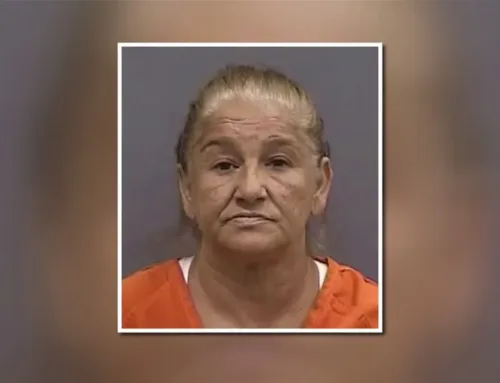Published:October 23, 2021
-Global News
A proposed rejigging of Canada’s electoral map could see Quebec lose one of its seats in the House of Commons by 2024 while Alberta gains three and Ontario and B.C. each gain one.
The changes would increase the total number of federal ridings to 342 from 338.
There are reasonable arguments for and against implementing the exact changes recommended by Elections Canada. But Bloc Québécois leader Yves-François Blanchet’s opening salvo in the debate — that the BQ would “unleash the fires of hell” if his province’s seat count is dropped to 77 from 78 — is the wrong way to begin what needs to be a calm, cool conversation about updating the country’s political geography.
How are we supposed to respond to Blanchet’s Trumpian explosion of outrage? Can thoughtful discussion follow a toddler’s tantrum?
Injecting apocalyptic rhetoric into a decision-making process that must be driven by the fundamental democratic principle of representation by population — and basic math — is precisely how to inflame prejudices, fuel interprovincial pettiness and polarize the nation.
Blanchet, of course, knows this. Driving wedges wherever possible between Quebec and the rest of Canada is crucial, by definition, to the political project of any diehard separatist.
So we shouldn’t be too surprised that Blanchet has zeroed in histrionically on the planned removal of a single Quebec seat from the Commons as if it were a sign of the End Times. Although Elections Canada proposed the change for the benign reason that Quebec’s population is not growing at the same pace as the populations in Alberta, Ontario or B.C. — and because Quebec is (relative to those other big provinces) already more fairly represented in the current parliamentary seat count — Blanchet is invoking biblical imagery of the final battle between Good and Evil.
Sonia LeBel, Quebec’s minister responsible for relations with the rest of Canada, has employed more moderate language — and advanced a more compelling rationale — in urging special considerations for the province in the latest redistribution of federal ridings.
“We are part of the founding peoples of Canada,” she said this week. “We have three seats guaranteed at the Supreme Court for judges. We have seats guaranteed in the Senate, a weight that is important and represents much more than just a simple calculation of population.”
All of this is why Prime Minister Justin Trudeau and other political leaders interested in preserving the peace in our mostly peaceable kingdom need to rise above Blanchet’s blatant bullying while finding a sensible solution to the seat-count conundrum — one that delicately balances numerical fairness with other considerations endemic in a land of complexity and compromise.
Remember: there’s no purely mathematical justification for granting a federal seat to each of Canada’s three territories — none of which has a population above 50,000 — when the average number of Canadians represented by each MP is more than 110,000. There’s no logical reason, either, for Prince Edward Island — with a mere 0.43 per cent of the national population of about 38 million — to have four seats representing 1.19 per cent of the elected positions in Parliament.
So there may well be legitimate reasons to avoid reducing Quebec’s seat count at this time.
In 2011, the Conservative government of Stephen Harper implemented legislation that increased the number of seats to 338 from 308 to reflect population changes. At the time, the Harper government — with much prodding from Quebec, the BQ and other opposition parties — chose to inflate the overall size of the House of the Commons so that the number of Quebec seats would increase (by three, to 78) instead of remaining static at 75 — as an earlier, hotly rejected, purely mathematical proposal had called for.
The government’s thinking at the time was that tweaking the formula for allocating seats in a way that would better recognize Quebec’s special status as a nation within the nation was politically prudent.
It also happened to keep the province’s seat total roughly proportional to its percentage of Canada’s population, even as those two numbers remained unfairly out of whack for faster-growing provinces.
The Quebec-friendly adjustment wasn’t immediately embraced by Harper’s own caucus. The additional Quebec seats, according to a Globe and Mail report at the time, “caused consternation among Conservative backbenchers, who were concerned that Canada’s French-speaking province was benefiting from a bill meant to address under-representation in the three large and fast-growing anglophone provinces” — Alberta, Ontario and B.C.
Sound familiar?
The Conservative caucus was ultimately convinced by Harper to accept the plan for the sake of national unity. But despite the Quebec-friendly compromise, the pre-Blanchet Bloc Québécois still slammed the 2011 reconfiguration of the House as falling short of true recognition of the province’s “unique status with regard to its political weight.”
You can’t please everyone. As then-B.C. premier Christy Clark, who supported the 2011 changes, said at the time: “Perfection in these things is impossible because it’s a big and complicated country.”
A decade later, the scenario confronting Elections Canada, the federal government and the provinces is much the same. And maybe a little massaging of the numbers to mollify Quebec is warranted yet again.
Would it be so bad if Quebec kept its 78 seats and we had 343 federal ridings instead of 342? That would represent about 22.7 per cent of the seats in the House for a province with about 22.6 per cent of Canada’s population. (Meanwhile, Ontario’s proposed 122 seats would then account for 35.6 per cent of 343 seats for a province with almost 39 per cent of the country’s population.)




